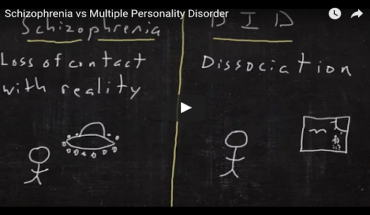Experts Call for Societal Support and Inclusivity in Menopause Care: Experts have emphasised the need for an inclusive approach to menopause that extends beyond medical treatments.
A comprehensive re-evaluation of how society prepares for, supports, and empowers women as they experience menopause has been advocated for in a series published in The Lancet today.
Led by Professor Martha Hickey of the University of Melbourne Department of Obstetrics and Gynaecology and the Royal Women’s Hospital in Melbourne, the series emphasises the need for an inclusive approach that extends beyond medical treatments to include empathetic clinical care, workplace adjustments, and incorporate high-quality information on symptoms and treatment options.
According to Professor Hickey and her team of international experts, recognising menopause as a natural part of healthy ageing can reduce stigma, and minimise the overmedicalisation that currently surrounds menopause.
“The misconception that menopause always signifies a medical issue leading to a decline in a woman’s health is a narrative that needs to be challenged across all of society,” Professor Hickey said.
“Many women live rewarding lives during and after menopause, contributing to work, family life and wider society. Changing the narrative to view menopause as part of healthy ageing may help more women to navigate this life stage and reduce fear and trepidation amongst those who have yet to experience it.”
Professor Hickey said that the experience of menopause differs and an individualised approach is needed for each woman, and that “Women need accurate, consistent and impartial information to make informed decisions that are right for them over the menopause transition.
“This may include taking Menopausal Hormone Therapy for symptoms, such as hot flushes and night sweats, which can range from mild to extremely debilitating – after a discussion with their doctor about the risks and benefits.”
Alternatively, some women may choose psychological therapies like cognitive behavioural therapy (CBT) to reduce the psychological impact of hot flushes and night sweats, and improve sleep.
Dr Lydia Brown, lead author of a paper within the series, highlighted the cultural moment menopause is experiencing in countries like Australia, the UK, and the USA, where discussions about menopause are becoming more open. However, she cautions against a focus on hormone replacement as the sole solution to menopause-related issues, pointing out the diverse range of experiences women have with menopause.
“While it’s certainly the case that some women have extremely negative experiences of menopause and benefit from hormone therapies, that isn’t the whole picture,” Dr Brown said.
“The reality is much more complex and varied, with some women reporting neutral experiences and others highlighting good aspects, such as freedom from menstruation and menstrual pain.
“Menopause is having a cultural moment, and this is an opportunity for it to be recognised as a natural part of healthy ageing for women which, with the right preparation and support, is not something to fear.”
The series also dispels the myth that menopause is inherently linked to poor mental health, citing a review of studies that show mixed results regarding the association between menopause and depression.
The experts call for healthcare professionals, researchers, workplaces, and wider society to support the empowerment of women during menopause, ensuring they have the knowledge and self determination to make informed decisions and can seek effective help if needed.
Healthcare workers can support patients by validating their experiences and providing balanced and consistent information about symptoms and treatment options, if required.
The series also discusses the effectiveness of Menopausal Hormone Therapy (MHT) for managing symptoms such as hot flushes and night sweats, while also acknowledging the potential benefits of psychological therapies like cognitive behavioural therapy (CBT) and lifestyle changes.
The influence of commercial interests on the portrayal and treatment of menopause is critically examined, with a call for women to have access to unbiased, evidence-based information. The series advocates for more research into areas of menopause care that women prioritise and for workplaces to adopt inclusive policies that support women during this life stage.
The authors highlight the need for a substantial societal shift in the views of midlife and older women held by clinicians, researchers, and workplaces, with a greater appreciation of these women’s considerable contribution to society, their skills in the paid and unpaid workforce and how they often care for families across generations.
Finally, the series addresses the specific needs of women who experience premature or early menopause, for whom there are often delays in diagnosis and experiences of distress and isolation, as well as specific needs for women undergoing menopause due to cancer treatment, emphasising the need for increased awareness, better treatments, and more supportive care.
A note about language and inclusivity:
Menopause happens to all people with functioning female gonads at some point who do not take cross gender hormones. This includes most individuals assigned female at birth, even if their gender identity does not align with that assignment. The academics have used the terms ‘women’ and ‘women’s health’ to encompass all these individuals.
- The da Vinci 5 Robot Is Set To Transform Bariatric Care: - 31st March 2025
- Beyond money: the hidden drivers fuelling child food insecurity - 31st March 2025
- Tobacco and Vapes Bill - 31st March 2025






